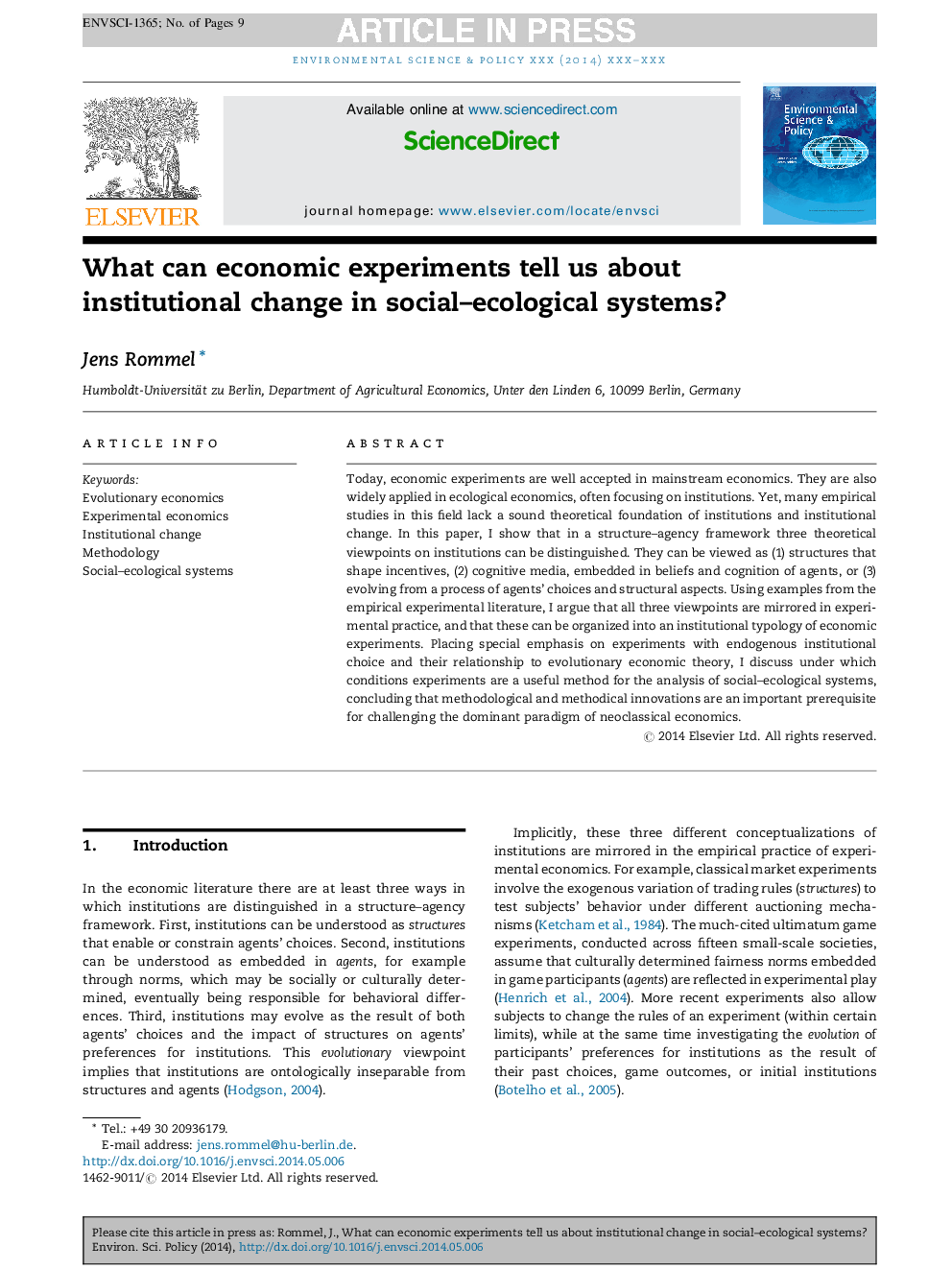| Article ID | Journal | Published Year | Pages | File Type |
|---|---|---|---|---|
| 10504577 | Environmental Science & Policy | 2015 | 9 Pages |
Abstract
Today, economic experiments are well accepted in mainstream economics. They are also widely applied in ecological economics, often focusing on institutions. Yet, many empirical studies in this field lack a sound theoretical foundation of institutions and institutional change. In this paper, I show that in a structure-agency framework three theoretical viewpoints on institutions can be distinguished. They can be viewed as (1) structures that shape incentives, (2) cognitive media, embedded in beliefs and cognition of agents, or (3) evolving from a process of agents' choices and structural aspects. Using examples from the empirical experimental literature, I argue that all three viewpoints are mirrored in experimental practice, and that these can be organized into an institutional typology of economic experiments. Placing special emphasis on experiments with endogenous institutional choice and their relationship to evolutionary economic theory, I discuss under which conditions experiments are a useful method for the analysis of social-ecological systems, concluding that methodological and methodical innovations are an important prerequisite for challenging the dominant paradigm of neoclassical economics.
Keywords
Related Topics
Physical Sciences and Engineering
Energy
Renewable Energy, Sustainability and the Environment
Authors
Jens Rommel,
